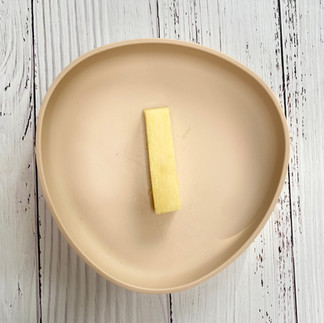The benefits of teethers for babies extend beyond just soothing sore gums, and yes you are not going crazy, there are no teething rusks on the supermarket shelves, so now what .......

Teething, while a significant milestone in your baby's development, can be a source of discomfort and distress for both parent and child. There are lots of teething solutions on the market, for many years teething rusks have been recommended for children who have started solids. There are lots of benefits to using a teether for your baby, beyond just soothing sore gums.
Soothing Relief
For babies, teething can be downright uncomfortable, causing irritability and even loss of appetite. A teething baby will gnaw on anything he or she can get their mouth around. The counter pressure from biting or gnawing on an object helps to relieve the pressure from under the gums
Developmental Support
Teething isn't just about those pearly whites making their debut; it's also a crucial stage for sensory and oral motor development. By grasping, and exploring different textures, babies can refine their fine motor skills and hand-eye coordination. Teethers can also help babies develop their skills for eating, by strengthening muscles used for chewing, promoting tongue movement from side to side, decreasing gag sensitivity and providing sensory feedback in the mouth.
Safe Exploration
Babies are natural explorers, and everything seems to find its way into their curious little mouths. Teethers offer an alternative to hands/and any household objects they may come across.
Hygiene Helpers
Maintaining oral hygiene from the get-go sets the stage for a lifetime of healthy habits. Introducing teethers not only soothes sore gums but also familiarizes babies with the concept of oral care.
What happened to teething rusks?
One of the most popular methods to support teething was to introduce teething rusks to babies who were developmentally ready for solids at around 6 months of age.
If you have been searching for teething rusks in Australia they are almost impossible to find in-store and unavailable or 'out of stock' online.
In Australia, the supply of teething rusks won't get better any time soon, two major companies that manufacture milk rusks are now not currently supplying them to retailers, and I have yet to be able to find any stock online across any brands.
What to offer instead?
There is no doubt that there are big benefits to introducing teethers.
For babies who are developmentally ready for solids around 6 months of age, one option is to offer food teethers. Food teethers are firm or hard sticks of food that are unbreakable, meaning that your baby would not be able to bite a piece off, they are for oral exploring only (not eating), typically in a long finger-length shape for easy gripping, but thick enough so baby cannot bite through.
These foods should be checked to make sure there are no hard pieces that could easily break away (a single solid firm piece of food).
Always stay with your baby while they are eating.
Once your baby develops teeth, some of these options may not be appropriate (like celery if they can bite a piece off)
Hard foods that can break off into your child's mouth can be a choking risk.
Food teethers
Watermelon rind
Pineapple core
Mango pip
Corn on the cob
Frozen celery stick
Pineapple core
Cut away all pineapple flesh leaving just the hard centre core, you can then cut this to size.
Watermelon rind
Wash and dry the rind, cut away most of the flesh leaving 1cm of watermelon on the rind.
Mango Pip
Cut away all the mango and the stem from the mango pip.
Corn on the cob
Celery stick
Choose a large firm celery stick, freeze and serve.
X Anna
Anna Ritan, APD, Paediatric Dietitian and Nutritionist.













Comentarios